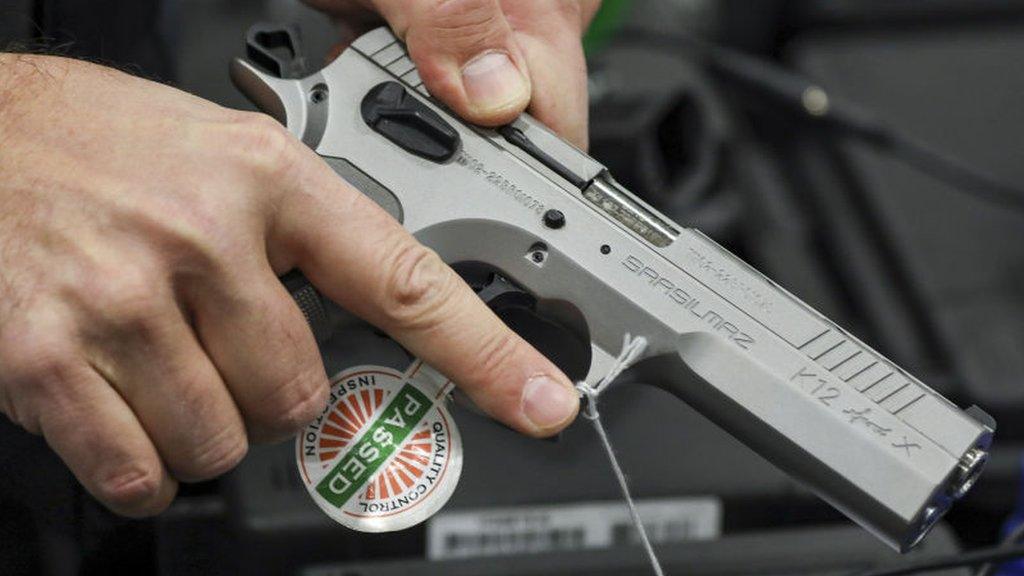Lawmakers expelled: What to know about the 'Tennessee Three'
- Published
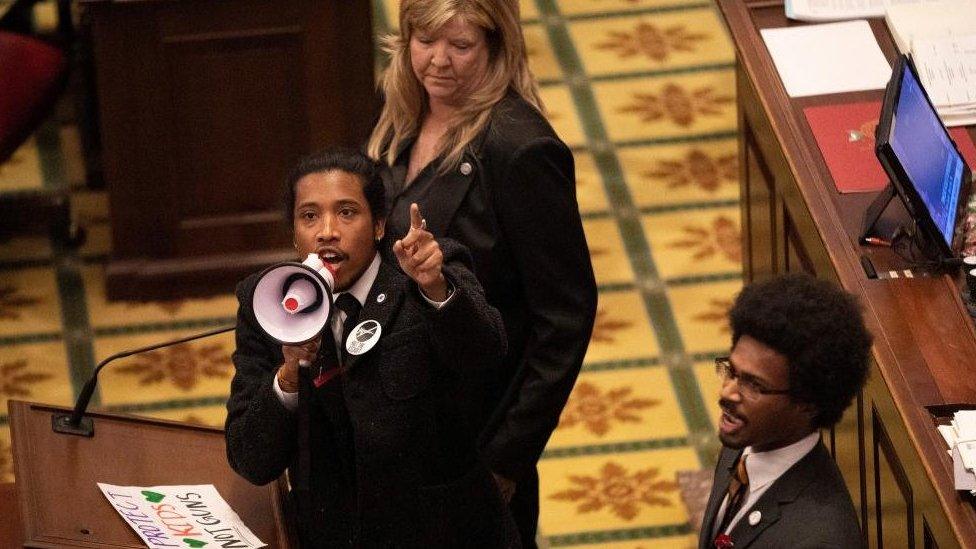
Tennessee State Representatives Justin Jones, Gloria Johnson and Justin Pearson, all Democrats, led chants from the House floor calling on colleagues to pass gun control legislation
Tennessee's House of Representatives has expelled two Democratic lawmakers for leading gun control demonstrations from the House floor.
Republicans accused three Democratic representatives of bringing "disorder and dishonour to the House".
Expelling lawmakers from their elected positions is an exceptionally rare move in state legislatures.
Thursday's votes made the expulsions even more controversial when House Republicans chose to expel two black representatives but not the third Democrat, a white woman.
Here are the key things to know:
Who are the 'Tennessee Three?'
Democratic representatives Justin Jones, Justin Pearson and Gloria Johnson joined demonstrators gathered at the statehouse on 30 March to demand stricter gun control laws. The three entered the House chamber during the protest and led chants from the lectern, disrupting proceedings.
The protest came just days after six people, including three children, were killed in a school shooting at Covenant School in Nashville.
During the protest, Mr Jones held a sign that read "protect kids, not guns", and also led protest chants, shouting "no action, no peace" into a megaphone.
Dubbed the "Tennessee Three", the three Democrats represent about 200,000 constituents in Tennessee.
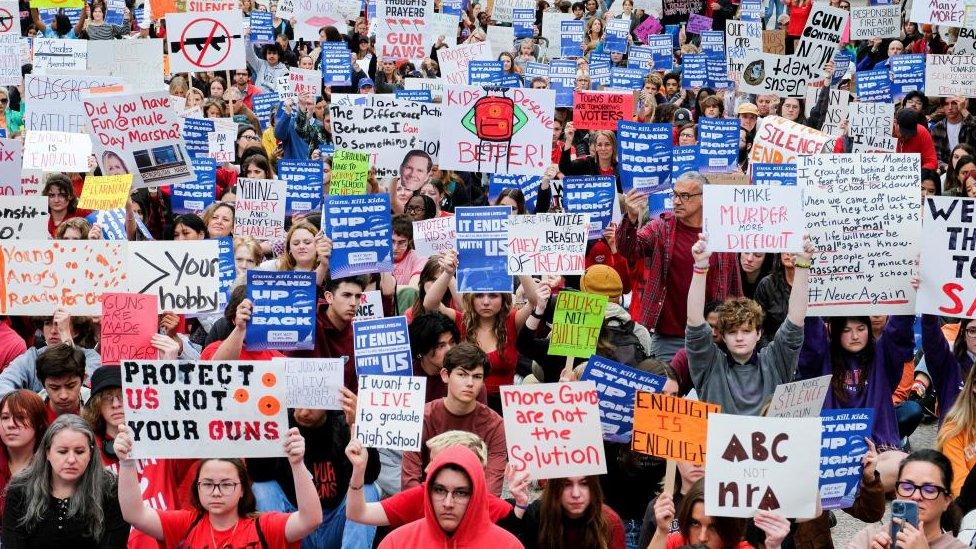
More than a thousand students staged a school walk-out on Monday to demand stricter gun laws
What happened to them?
Mr Jones and Ms Johnson were stripped of their committee assignments by the Republican leadership after the disruption. Mr Pearson did not serve on a committee.
Republicans, who hold a supermajority in the state, then filed a resolution to expel the three Democrats from their seats in the state legislature for "disorderly behaviour".
The resolution said the three brought "disorder and dishonour to the House of Representatives through their individual and collective actions".
In the run-up to the vote on Thursday, members of both parties traded barbs as they debated proposed legislation.
Mr Jones, Ms Johnson and Mr Pearson entered the chamber together holding hands, their fists raised. Just outside, protesters - including young students and their parents - crowded the halls of the statehouse, where they had gathered for days calling for stricter gun laws.
"We protect the Tennessee Three!" they shouted, referring to the Democrats. "Justin! Justin! Gloria!"
By the end of the day, Mr Jones and Mr Pearson, both black and known by many as The Justins, had been expelled by House Republicans. Ms Johnson, who is white, avoided expulsion by a single vote.
Is expulsion permanent?
Expulsion votes are exceptionally rare. In Tennessee, the House of Representatives has only voted twice since the Civil War to expel a member - one for a sitting lawmaker who was convicted of soliciting a bribe, and another for a majority whip who was facing allegations of sexual misconduct.
When it does occur, an expulsion does not necessarily mean the end of a state representative's career.
The expelled representative's district must choose an interim replacement until an election can be held. No rules prevent the council from appointing the expelled member back to the House in an interim capacity.
In this case of expulsion, Tennessee law requires a special election to be called to elect a permanent representative. Expelled representatives are not prohibited from running again, so voters could conceivably send Mr Jones and Mr Pearson back to the statehouse to finish out their term as fully elected members safely.
Tennessee's constitution does not allow members to be expelled twice for the same offence.
At least one of those outcomes appears likely - as soon as next week.
The vice mayor from Mr Jones' district has called a meeting on Monday to begin the process of nominating an interim replacement. That process usually takes about four weeks, but if the council decides to suspend its rules, a vote could be held that night, according to Axios, external. Several council members have already pledged to appoint Mr Jones.
Should Mr Jones and Mr Pearson choose to run for re-election, fundraising efforts are already underway. A GoFundMe page for the "Tennessee Three" raised $41,206 (£33,175) in three days.
What did Republicans say?
Republican House Speaker Cameron Sexton, who voted in favour of the expulsion, argued the move is not about the right to protest, but rather about maintaining order in the legislature.
"Their actions are and will always be unacceptable, and they break several rules of decorum and procedure on the House floor," Mr Sexton wrote on Twitter.
"In effect, those actions took away the voices of the protestors, the focus on the six victims who lost their lives, and the families who lost their loved ones."
In response to the school shooting, Tennessee's Republican Governor Bill Lee proposed $155m to place an armed security guard at every public school in Tennessee and to boost security presence at both public and private schools.
What have critics said?
The move has been criticised by Tennessee's branch of the American Civil Liberties Union (ACLU) as an "extreme measure".
"Trying to expel three lawmakers without due process for amplifying the voices of their constituents in a peaceful, non-violent manner undermines democracy," said Kathy Sinback, the executive director of Tennessee's ACLU in a statement.
Ms Johnson said an expulsion vote would have a "chilling effect" on states beyond Tennessee.
"This is chipping away at our democracy, there's no question, because everybody's going to wonder, 'am I next?'" Ms Johnson told Politico.
US President Biden reacted to the expulsions on Thursday, saying, "Today's expulsion of lawmakers who engaged in peaceful protest is shocking, undemocratic, and without precedent."
What happened in the Nashville Covenant school shooting?
Survivor of Illinois shooting makes angry plea in Nashville
Six people - three children and three staff - were killed in a shooting by an ex-student at the Covenant School in Nashville, Tennessee, on 27 March.
Three staff members of The Covenant School - Cynthia Peak, 61, Katherine Koonce, 60, and Michael Hill, 61 - were killed, along with three nine-year-old students: Evelyn Dieckhaus, Hallie Scruggs and William Kinney.
Police identified the shooter as 28-year-old Audrey Hale, a former student at the private Christian school.
They said the shooter fired 152 rounds and that the attack was planned "over a period of months". A manifesto by the shooter was recovered by police, but they have yet to determine a motive.
Police added that Hale "acted totally alone", and that the shooter had considered carrying out other mass murders.
Hale was killed after a confrontation with police 14 minutes after the shooting began.
The shooting once again ignited a heated political debate in the US on gun laws and safety.
Related topics
- Published8 April 2023
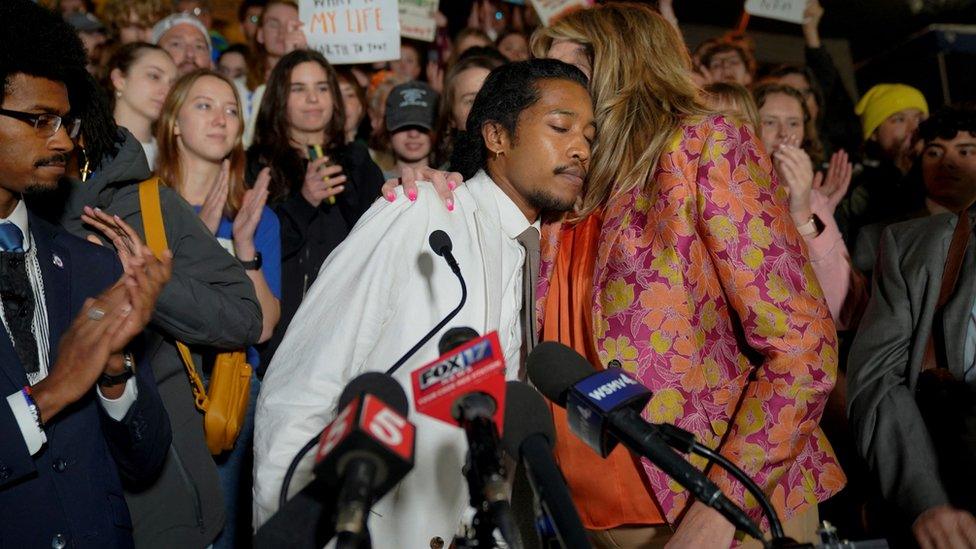
- Published31 March 2023
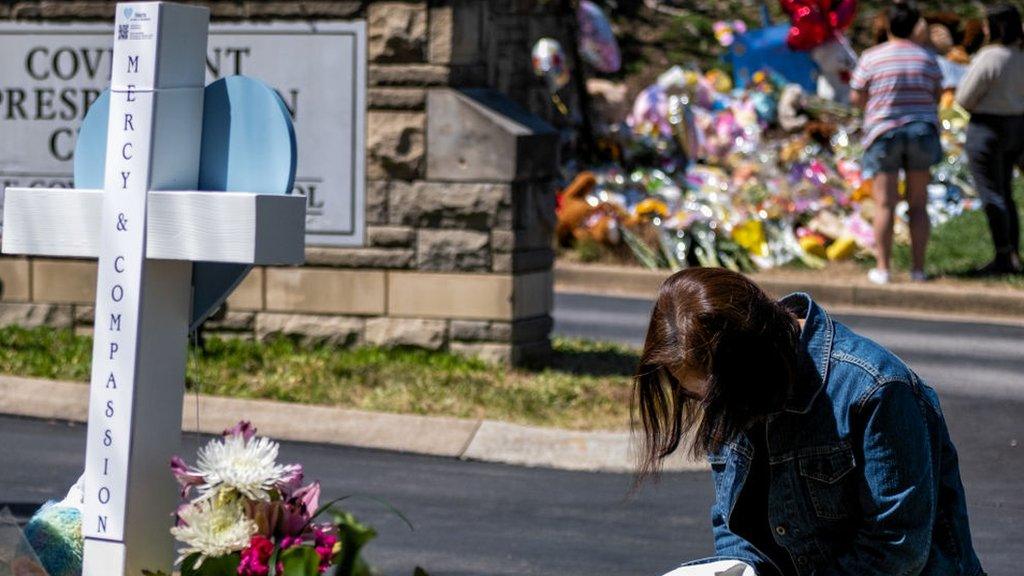
- Published29 March 2023
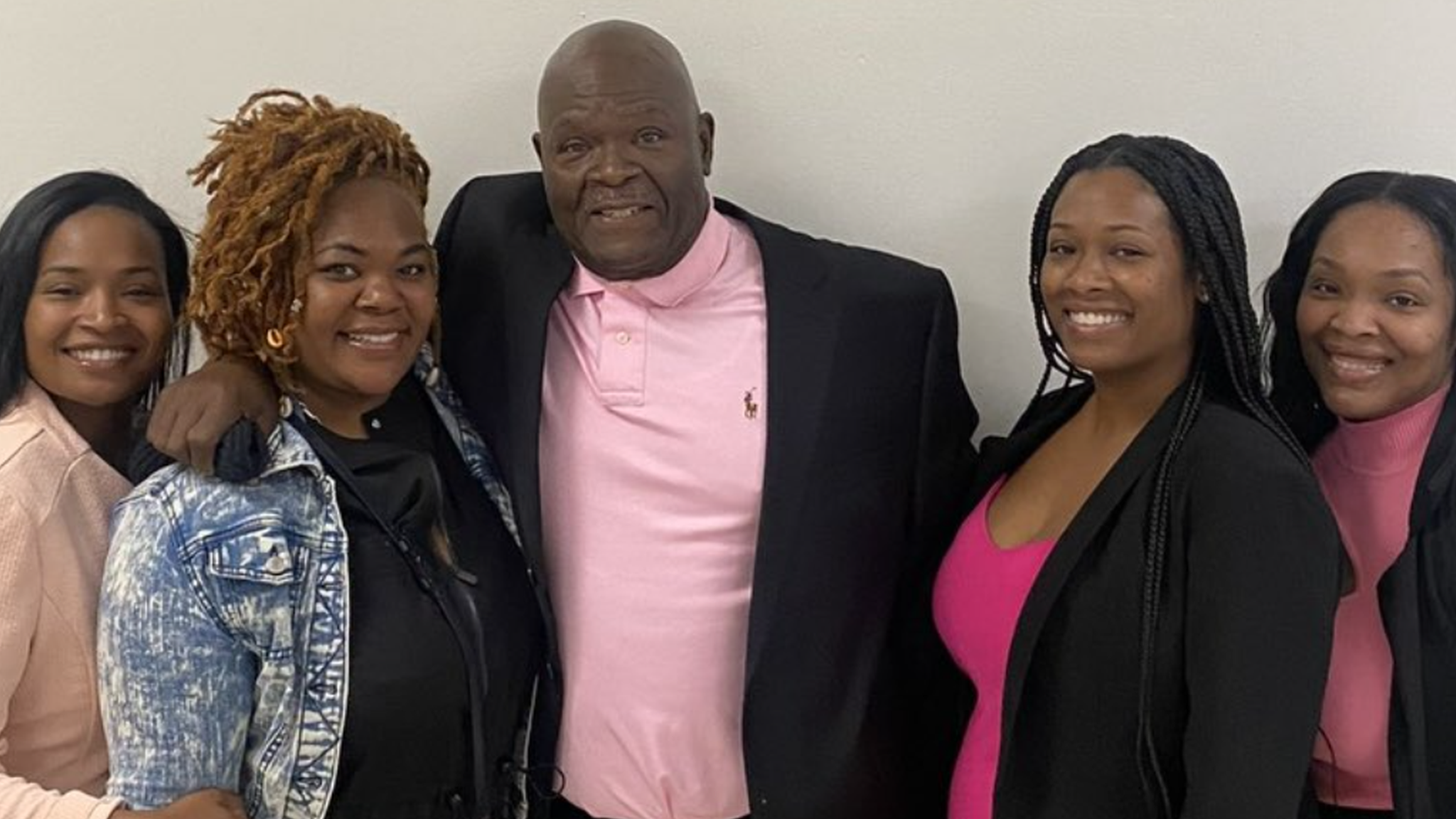
- Published29 March 2023
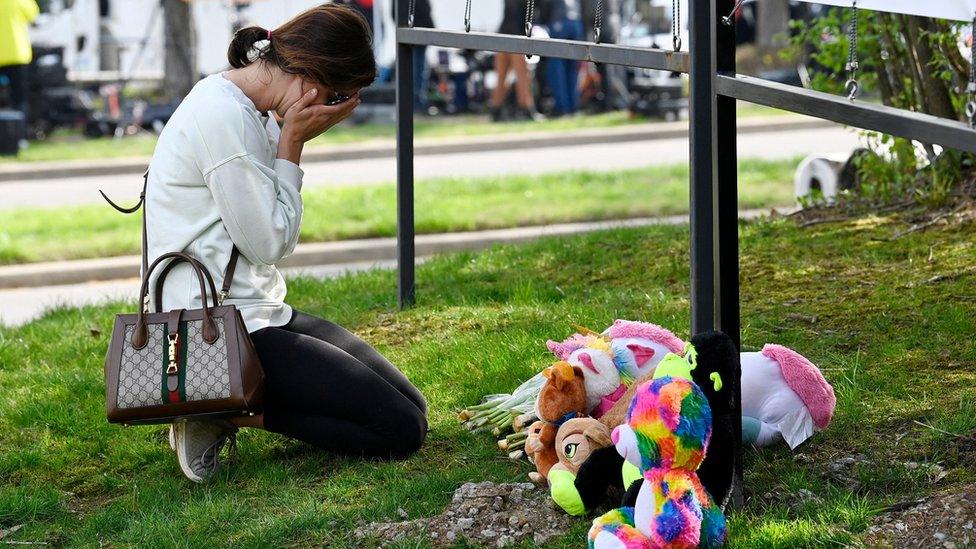
- Published17 December 2024
